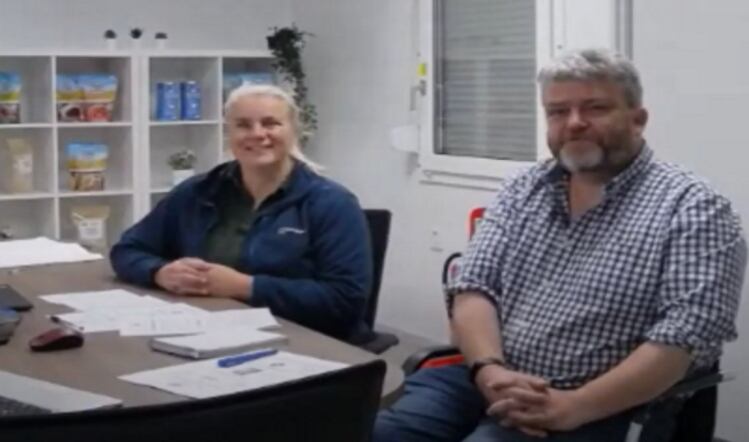Sister and brother Rebecca and Philip Rayner said the company – shortlisted for the Plant-Based Manufacturing Company of the Year – aimed to develop its product portfolio, having recently recruited two NPD personnel.
Rebecca said: “We’ve started with our core product, which is PureOaty oat milk, and we’re looking at new variants. We’re going to invest about £6m in the next three to four years.”
According to Philip, these are ‘exciting times’ in the plant-based market.
‘Innovative market’
“It’s very much an early, innovative market where we like to be and push forward,” he said.
Glebe Farm is one of three companies shortlisted in the Plant-based Manufacturing Company of the Year category of the Food Manufacture Excellence Awards, sponsored by Dawn Foods and Fowler Welch.
Commenting on their potential to win the category award, the pair said they hoped the upcoming Food Manufacture Excellence Awards could be a springboard for their company’s further success.
Opportunities
With just over three weeks to go until the category winner is revealed on 11 February, Rebecca Rayner said the personal recognition of taking the plant-based prize would be ‘absolutely brilliant’.
She added: “There is the opportunity to open new doors for us as well, also ideally to launch new products with customers. We can show them that we can help them with anything they want in the gluten-free oat market category.”
Thriving business
Philip Rayner revealed that Glebe Farm Foods has thrived over the last year despite the COVID-19 pandemic, describing business as ‘pretty much normal or slightly above average’. However, with customers looking to secure stock when the crisis hit, there was a ‘sudden rush’ that had been ‘a little more difficult to cope with’.
“But we increased capacity in the first lockdown, I think 50% in the first month, and made sure everyone got supplies,” said Philip. “It helped everybody to achieve what they needed to, even in a very uncertain time.”




